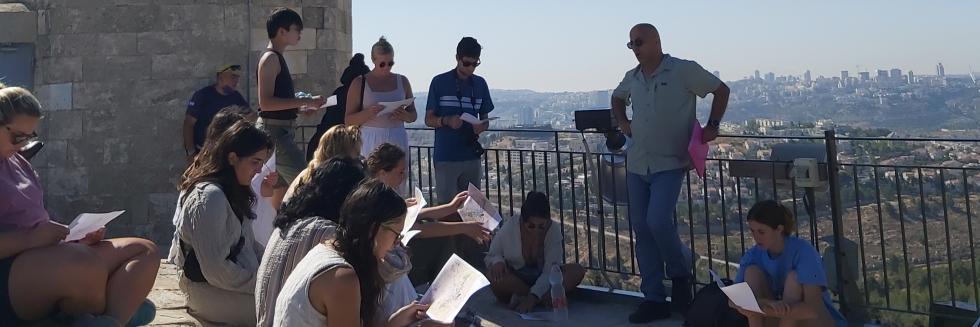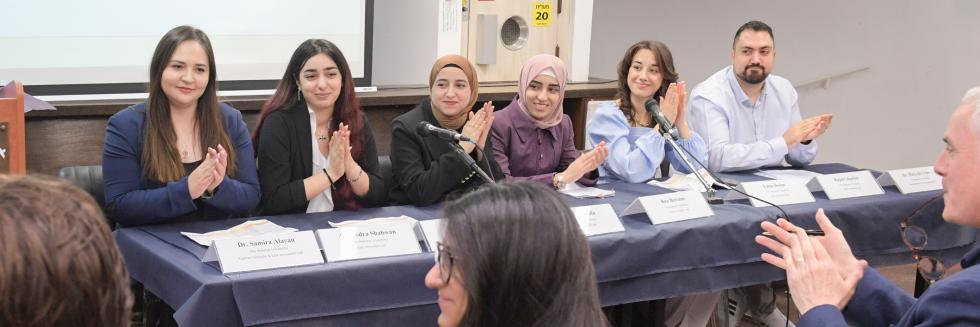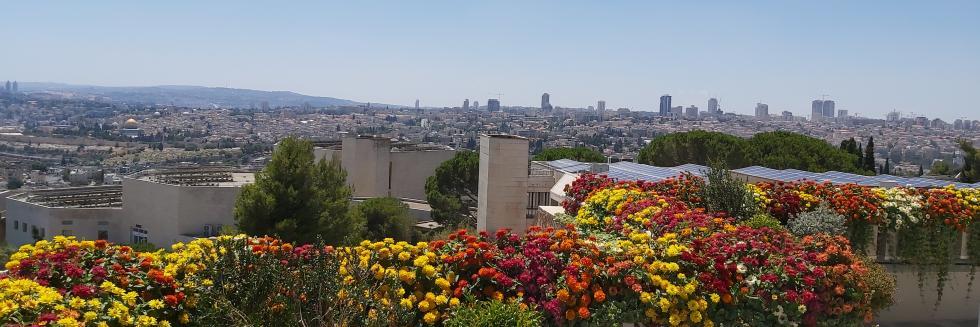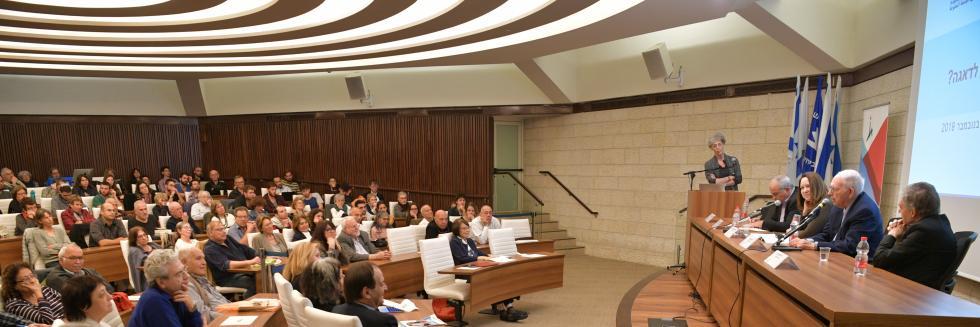Group Members: Dr. Maya Kahanoff and Dr. Amal Jamal
Collective Trauma, Recognition and Reconciliation:
The Israeli – Palestinian Case in Comparative Perspective
The relationship between trauma and recognition has not been thoroughly investigated to date. The study of trauma developed in the realm of clinical, social and political psychology. The issue of recognition has received much attention in recent decades, especially in philosophy and political thought. However, there are no studies examining the relationship between trauma and recognition, and more specifically the connection between these two issues and complex disputes and methods of resolving them.
This research project seeks to examine the relationship between collective trauma and recognition in the context of protracted ethno-national conflicts. We will explore the implications and consequences of collective traumas and traumatic memories for the formation and preservation of conflicts. Our study will focus on questions about the meaning of collective traumas, and the importance of recognition for groups who have experienced trauma. In addition, we wish to learn about different options of giving recognition as a means to deal with these traumas, and as a mechanism for promoting transformation of the conflict and reconciliation between the rival peoples, and to locate them in the local context of the Israeli-Palestinian conflict. The recognition and methods of resolving the issue, through the prism of collective trauma is likely to prove significant in theoretical, comparative and local contexts.
The project will encompass an attempt to understand the implications, as well as to postulate principles and mechanisms relevant to the Palestinian –Israeli context so as to advance practical recognition and constructive coping with conflict. We shall focus on collective trauma and recognition mechanisms that were part of the process of reconciliation in other ethno-national conflicts around the world, such as South Africa, Rwanda, The Balkans, Turkey, and Armenia and try to draw inferences about the Israeli-Palestinian conflict.
As a complement to the theoretical-comparative section of the study, we will conduct an empirical field study on activities held on behalf of the Bereaved Families Forum for reconciliation and peace. More specifically, we will focus on Israeli and Palestinian groups who meet as part of the Forum's project on narratives – which is directed at uncovering the personal and collective narratives of the other, focusing on the collective trauma of both national groups. The assumption and expectation is that these meetings will contribute to the acknowledgement of the pain of each group, and that this will develop and advance the process of reconciliation between them.
The theoretical research will use interpretive methods and the method of de-construction to reveal the existing perceptions of trauma and recognition, while presenting new parameters to create a new comparative typology. The empirical research will be conducted as a qualitative study, using anthropological methods and phenomenological interpretation. Data collection will be undertaken through participant observation in meetings of 4 narrative groups and in-depth interviews with some 20 participants in the groups. The analysis will be based on documentation of group discussions conducted during the meetings as well as documentation of personal interviews.
The combination of theoretical and empirical research to monitor the practices of narratives, testimony, familiarity with the trauma of the other and the process of acknowledgement will facilitate a thorough and comprehensive discussion of the proposed issues and will constitute an important innovation in the research arena dealing with complex conflicts and ways of dealing with them. The combination of trauma and recognition will give rise to a new consideration of the various conflicts and will help define dilemmas that arise in the course of resolving complex conflicts such as the Israeli-Palestinian case.





